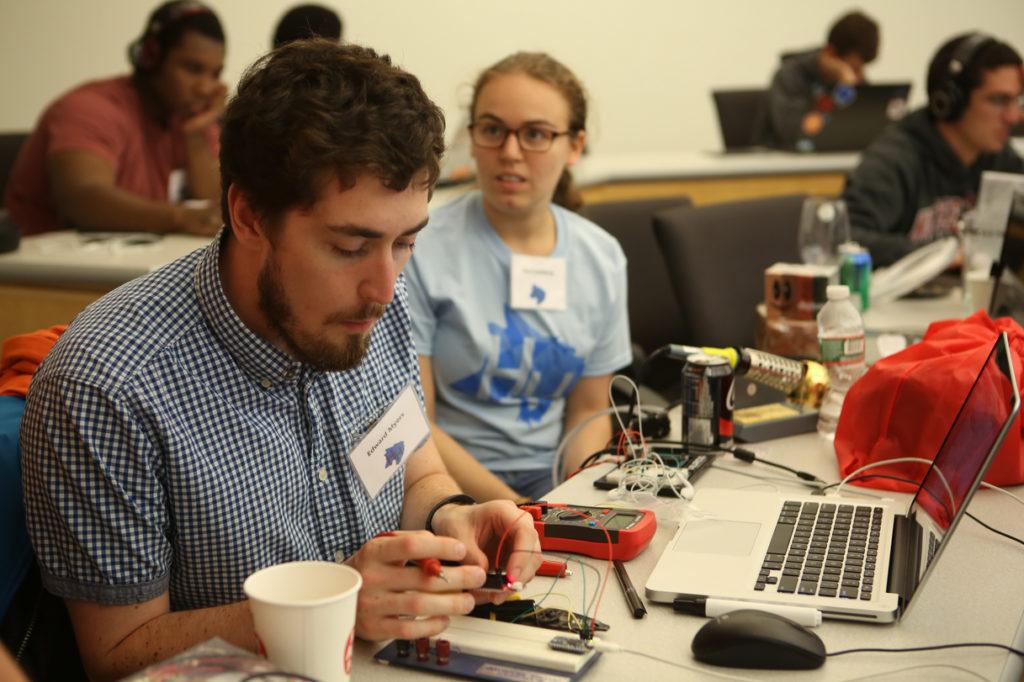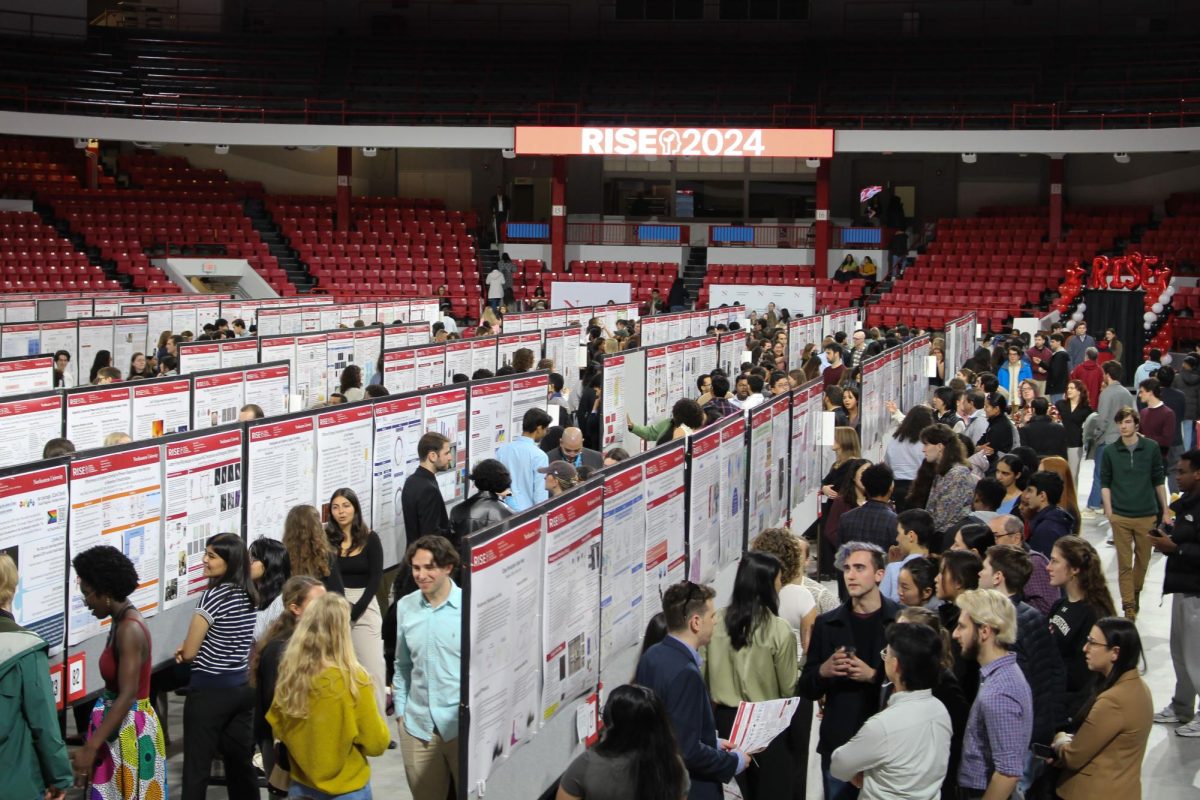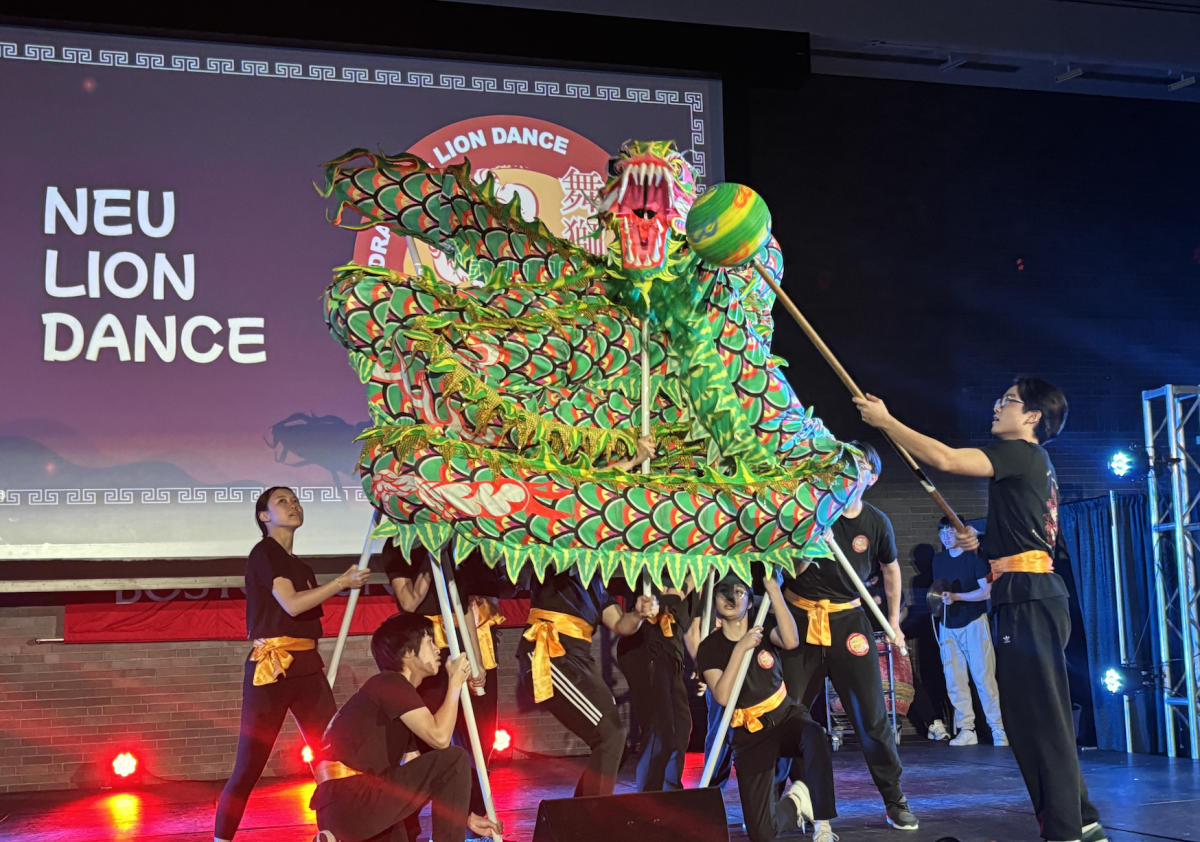By News Staff
More than 150 Northeastern students huddled around laptops, circuit boards and assorted electronics on the ground floor of West Village H, gathering to participate in HuskyHacks. A 24-hour competition lasting Saturday, Oct. 1 to Sunday Oct. 2, HuskyHacks 2.0 is Northeastern’s second iteration of its biannual hackathon.
A hackathon is a computer programming, software and hardware development competition. These competitions give graphic designers, interface designers and project managers an allotted amount of time to produce technological innovations, which are then judged for various categories.
Northeastern’s event invited students of all experience levels to join in teams of up to four to design and develop projects. Previous winning innovations have included a self-balancing, autonomous robot and a text-messaging application that sends reminders to the user and a friend.
“It’s great to see CCIS [College of Computer and Information Science] grow a community of hackers and developers outside of the classroom to complement and extend the curriculum,” said Adrian Kant, a third-year computer science major and HuskyHacks participant.
At the end of the event, a project titled Asciirender, a tool for users to render, display and send images as text when no image viewer is available, came in first for Most Technically Challenging Hack. Gotta Go Real Fast, a game entry, won Best Design. Best First Time Hack went to Serein, an innovation that not only tells users what the weather is, but simulates it as well, using a water pump to create rain, smart LEDs to show sunny or overcast weather and clouds that light up to mimic lightning.
Jason Booth, a sophomore computer engineering major, designed a data visualization website with his team at the competition. He said that he enjoyed the competition’s creative, innovative atmosphere.
“It was a very free place,” Booth said. “It’s unique because you’re learning skills that are often not taught in classes.”
Participating in this hackathon also can make students stronger candidates for co-ops, Booth said.
In the midst of the event, students demonstrated their collaboration through the event’s chat channel, which was populated with students both asking for and offering advice and materials. Requests for hardware ranged from a capacitor (a device used to temporarily store electrical energy) to a lighter (for stripping the casing from some wire).
Jake Messner, third-year computer engineering and electrical engineering student and cofounder of the event, said he believed part of this year’s hackathon’s increase in application numbers was due to the growing popularity of technological innovation. The event cofounders said that they wanted to maximize HuskyHacks’ accessibility for those without established ties to the community, recruiting mentors to make sure new “hackers” felt comfortable challenging themselves and even speaking to students in lower-level classes, encouraging them to come to the event.
HuskyHacks also demonstrated growth this year by managing to attract quadruple the number of sponsors present at the event compared to last year, with the sponsors representing a diverse range of interests.
“We even have support from IDEA, Northeastern’s student-led Venture Accelerator, which I think is really cool because; in a sense, they are a hackathon stemming more than just twenty-four hours,” Niousha Jafari, a third-year computer science major and cofounder of HuskyHacks said. “Students can come to them with ideas, and they’re able to help those projects grow over a duration longer than a single weekend.”
HuskyHacks is newer than other hackathons in the Boston area, including HackHarvard and HackBeanpot, both of which are three years old. HackBeanpot is a nonprofit unaffiliated with any university, but was founded in part by NU students. Jafari said she believes that this gives Northeastern’s program more room for flexibility and future growth.
The HuskyHacks cofounder said that the event’s leaders aimed to get students excited about being involved in innovation.
“We’re hoping that students are able to take what they learn, however specific or general it may be, and pass it along to others, creating a chain reaction,” Jafari said.
Caroline Boschetto contributed to this report.
Photo by Dylan Shen












